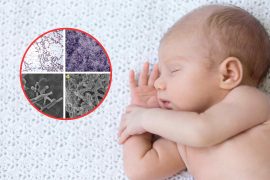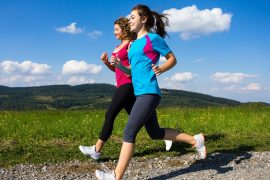
New study claims obesity is driven by these two factors, not just diet and exercise, upending current beliefs
Americans hear the same advice again and again – eat better and move more. Yet obesity keeps climbing. Almost 40 percent of adults live with it today. Healthcare costs soar past $170 billion each year.
Related diseases, including certain cancers, are rising too. If the answer were only diet and exercise, the trend would have reversed by now.
Scientists at UCLA Health argue that something else is driving the epidemic. They point to stress, inequality, and life circumstances that change how the gut and brain work.
These forces don’t just influence choices. They shape cravings, motivation, and biology itself.
Obesity tied to social pressures
The new review, published in Clinical Gastroenterology and Hepatology, shows how social conditions affect obesity. Researchers call these conditions social determinants of health.
These includes income, education, neighborhood safety, healthcare access, childhood adversity, discrimination, and isolation.
Think of them as the backdrop of daily life, where cheap food options dominate, streets feel unsafe, health care is hard to reach, and stress never fades.
Each of these pressures pushes the body toward weight gain, shaping how people eat, how much they move, and how they cope.
Gut microbes influence brain cravings
The body has a messenger system linking the gut to the brain. Microbes in the gut release signals. The brain responds with hormones and chemical shifts. Together, they steer appetite and cravings.
Dr. Arpana Church, who co-directs the Goodman-Luskin Microbiome Center, describes this loop as central.
“Our findings reveal that tackling obesity requires more than focusing on individual choices – it demands recognizing the powerful role that social and environmental forces play in shaping gut health, behavior and long-term health outcomes,” said Dr. Church.
“Reversing the escalating obesity epidemic in America demands a dual approach – personalized, equitable care for individuals and bold, systemic policy reforms that address the root causes.”
Stress fuels obesity patterns
Financial stress shapes food choices. Families on tight budgets often buy processed meals because fresh produce costs more.
Food insecurity makes obesity more common in both adults and children. Stress hormones then reinforce those eating patterns.
Neighborhoods also matter. Poorer areas often lack grocery stores, safe spaces, or healthcare. Violence and crime raise daily stress, pushing people toward food for comfort. Structural racism deepens the problem by concentrating disadvantage in certain communities.
Loneliness changes brain responses
Isolation adds another layer. People without strong social ties process food cues differently. The brain becomes more sensitive to rewards, and food looks more tempting.
At the same time, the gut microbiome loses diversity. Inflammation rises and cravings grow stronger.
“Research shows that social determinants of health – such as access to nutritious food, safe spaces for physical activity, access to resources such as education, grocery stores, and quality health care – are powerful drivers of obesity risk, underscoring the need to address the conditions in which people live, work and grow,” said Dr. Church.
Stress rewires the brain and body
Stress, poor diet, and discrimination don’t just change behavior – they rewire systems. Brain scans show less gray matter in areas that control motivation and self-control.
Chronic inflammation lowers dopamine, reducing satisfaction from normal rewards. Harmful bacteria flourish in the gut, weakening metabolism and insulin response.
Racism-related stress leaves its mark too. Repeated exposure alters brain networks that handle emotions and decision-making.
It also shifts gut chemistry, promoting inflammation. These biological changes make food an easy, almost automatic coping tool.
Childhood stress sets obesity patterns
The review shows that these effects start young. Stress during pregnancy changes fetal development. Children may inherit altered metabolic responses before they’re born.
After birth, breastfeeding, antibiotics, and early diet shape the microbiome further. Breastfeeding can lower obesity risk in adolescents, especially in disadvantaged families.
Still, ongoing stress and poor diet often outweigh those protections. By the time children reach school age, the patterns are set.
Community resources reduce risk
Dr. Church emphasized that policy shifts are vital. Health care must expand. Schools need healthier meals, and neighborhoods need grocery stores and safe parks. But individuals can still act within limits.
Choosing affordable nutritious food, keeping social connections, and practicing stress relief can all help. Walking outside, journaling, and gratitude exercises are simple tools.
“At the same time, healthcare providers have a vital role to play, not only by screening for current social determinants of health, but also by recognizing how these factors accumulate and evolve over time, which is rarely accounted for in today’s clinical practice,” said Dr. Church.
Mindfulness and therapy show promise
Clinics are trying new strategies. Cognitive behavioral therapy helps people change eating habits. Mindfulness reduces stress-driven overeating.
Researchers are also testing probiotics and even fecal microbiota transplants to restore gut health.
“By understanding these influences and tailoring treatment plans to account for biological and psychosocial challenges, providers can offer more personalized plans that improve outcomes, empowers individuals to take control over their health,” noted Dr. Church.
The message is clear: obesity is not only about food or exercise. It reflects stress, inequality, and biology shaped by the world outside. Until those pressures shift, the numbers won’t change.
The study is published in the journal Clinical Gastroenterology and Hepatology.
—–
Like what you read? Subscribe to our newsletter for engaging articles, exclusive content, and the latest updates.
Check us out on EarthSnap, a free app brought to you by Eric Ralls and Earth.com.
—–
News coming your way













